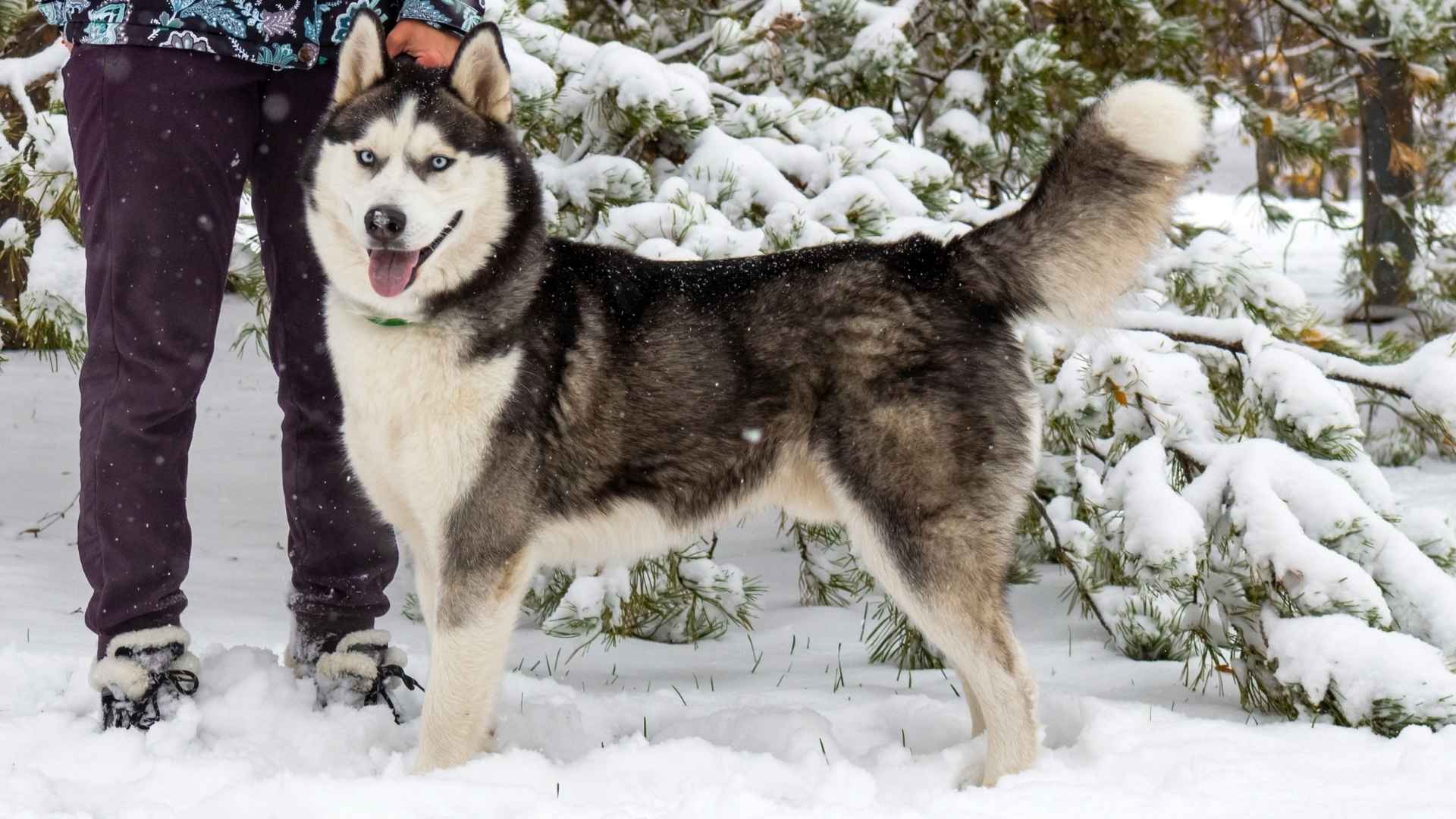Every year, thousands of dogs end up in shelters, even though it is no fault of their own. While abandonment can happen to any breed, certain dog breeds are more commonly given up on than others.
This often happens because of the mismatch between the dog’s needs and an owners lifestyle or expectations. High energy levels, grooming demands, health issues or even size can all lead to a dog’s abandonment.
Understanding a dog’s needs is key to helping future dog owners make more informed decisions and reduce overcrowding. When animal shelters are overwhelmed with abandoned animals, there is no choice left other than to euthanize some of the pets, which is a heartbreaking reality.
In this article, we will explore the breeds that are at the most risk of being surrendered, shedding light on why this happens and how responsible ownership can prevent it.
Most Abandoned Dog Breeds
1. German Shepherd
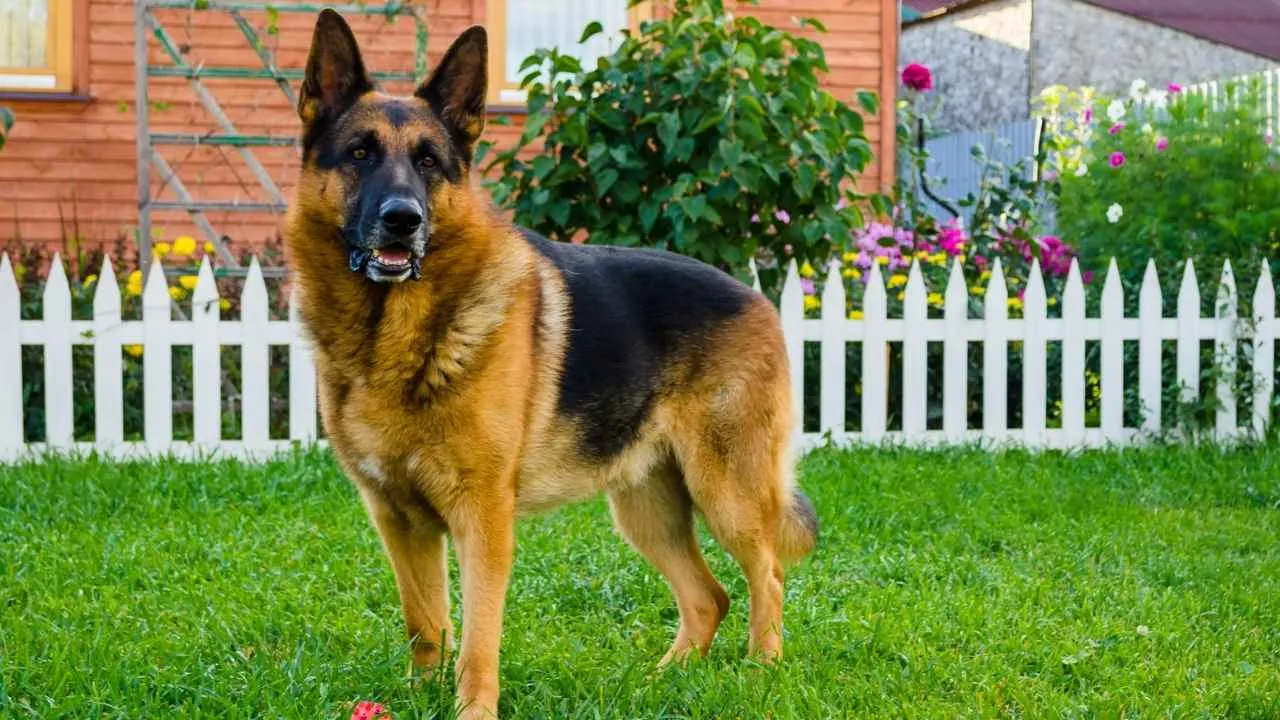
German Shepherds are among the most intelligent and loyal pets, often praised for their police work and military roles. However, their high energy, need for mental stimulation, and protective instincts can be too much for experienced owners. Many people are drawn to their majestic appearance and reputation for loyalty, but underestimate the level of daily commitment they require.
Without enough exercise and purpose, they can become anxious, destructive, or territorial. Their size and strength can be challenging in households that can’t provide consistent training or leadership. Some of their basic needs include early socialization, ongoing obedience work, and plenty of time outdoors.

Despite this, a well-cared-for German Shepherd can be an incredibly loving, protective and obedient companion. All they need is a home that can match their intensity.
Common Reasons for Abandonment
Highly energetic dogs with exercise needs
Behavioral issues due to a lack of training
Aggressive behavior when not properly socialized
Too large for apartment living
Owners underestimate long-term commitment
2. Siberian Husky
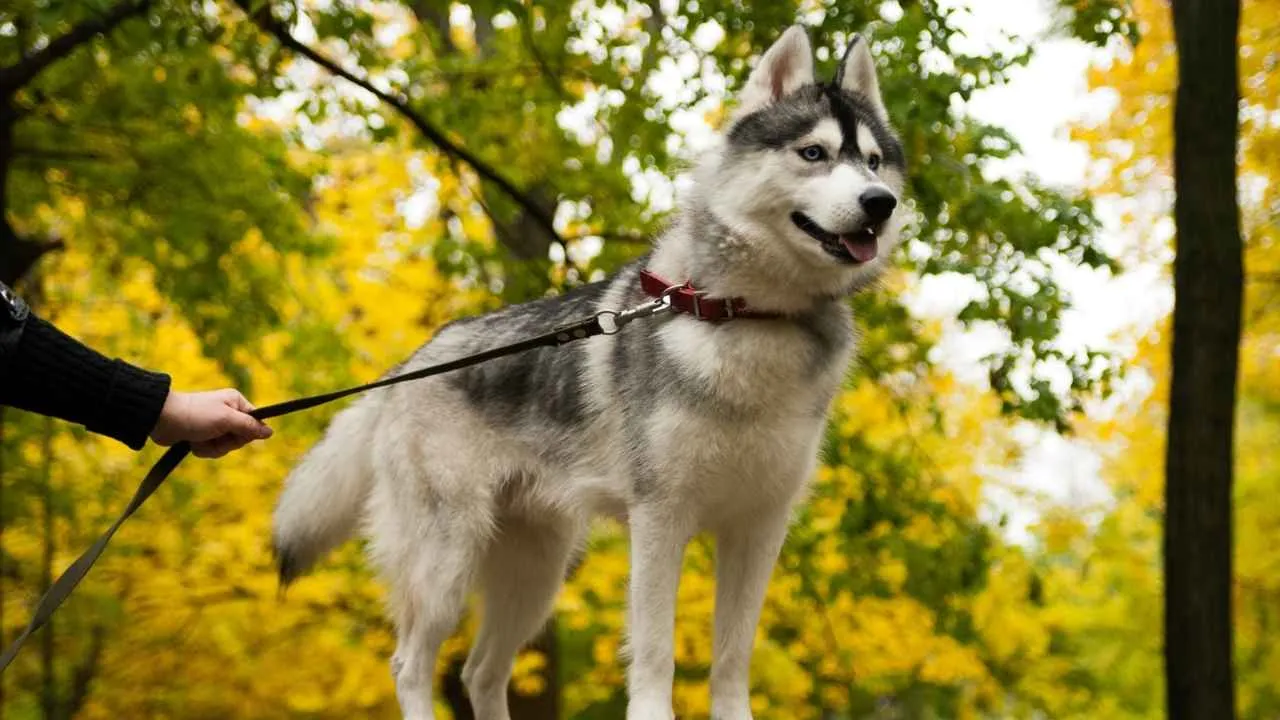
Siberian Huskies are stunning, wolf-like dogs who highly energetic with a strong independent mind. They were originally bred to pull sleds over long distances so they are naturally athletic, driven and possess an unmatched stamina. While all of these traits mean that they make excellent working dogs, they can be difficult pets for average households.
They always need a job to do; without it, they turn to digging, chewing or escaping. Because of these behavioral issues, owners think of them as stubborn dogs. They can be vocal and due to pack mentality, they demand attention.
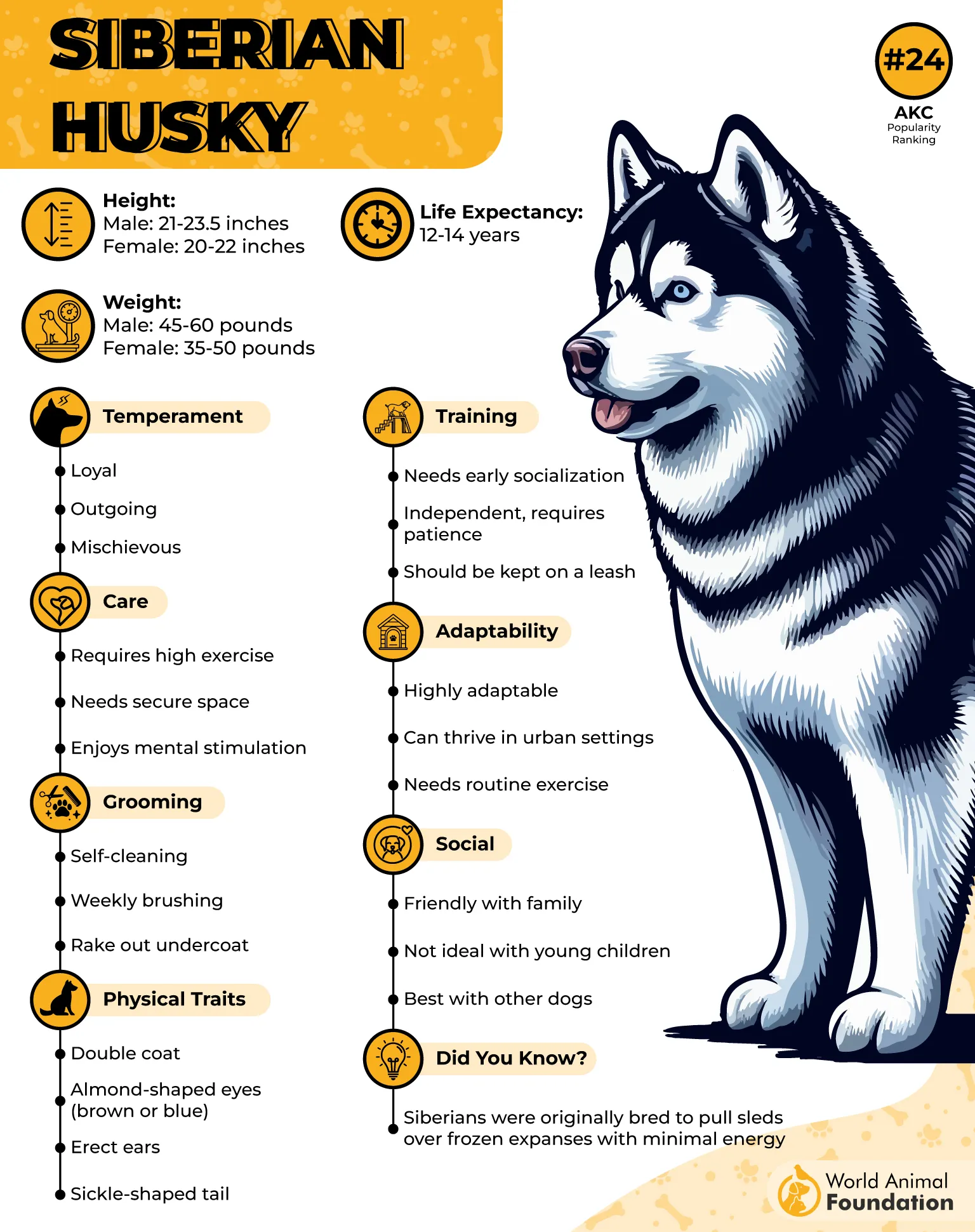
They are highly notorious for being escape artists. They can break through leashes, jump over fences and slip through small gaps if they are bored. Also, many owners adopt them only because of their looks, without realizing the responsibility of owning such a high maintenance dog.
Common Reasons for Abandonment
Extremely high energy and exercise requirements
Escape behavior, lack of recall
Strong-willed personality, a challenge for first-time owners
Excessive vocalization
Heavy shedding, they blow their coats twice a year
Adopted for appearance
3. Boxer

According to the AKC, Boxers are known their bouncy and playful nature. They retain their puppy like energy in to adulthood. However, the same enthusiasm can become overwhelming without proper training and outlets.
Boxers thrive on attention and activity, and when they do not get enough of it, they may resort to destructive chewing, jumping, or other habits that lead frustrated owners to give them up.
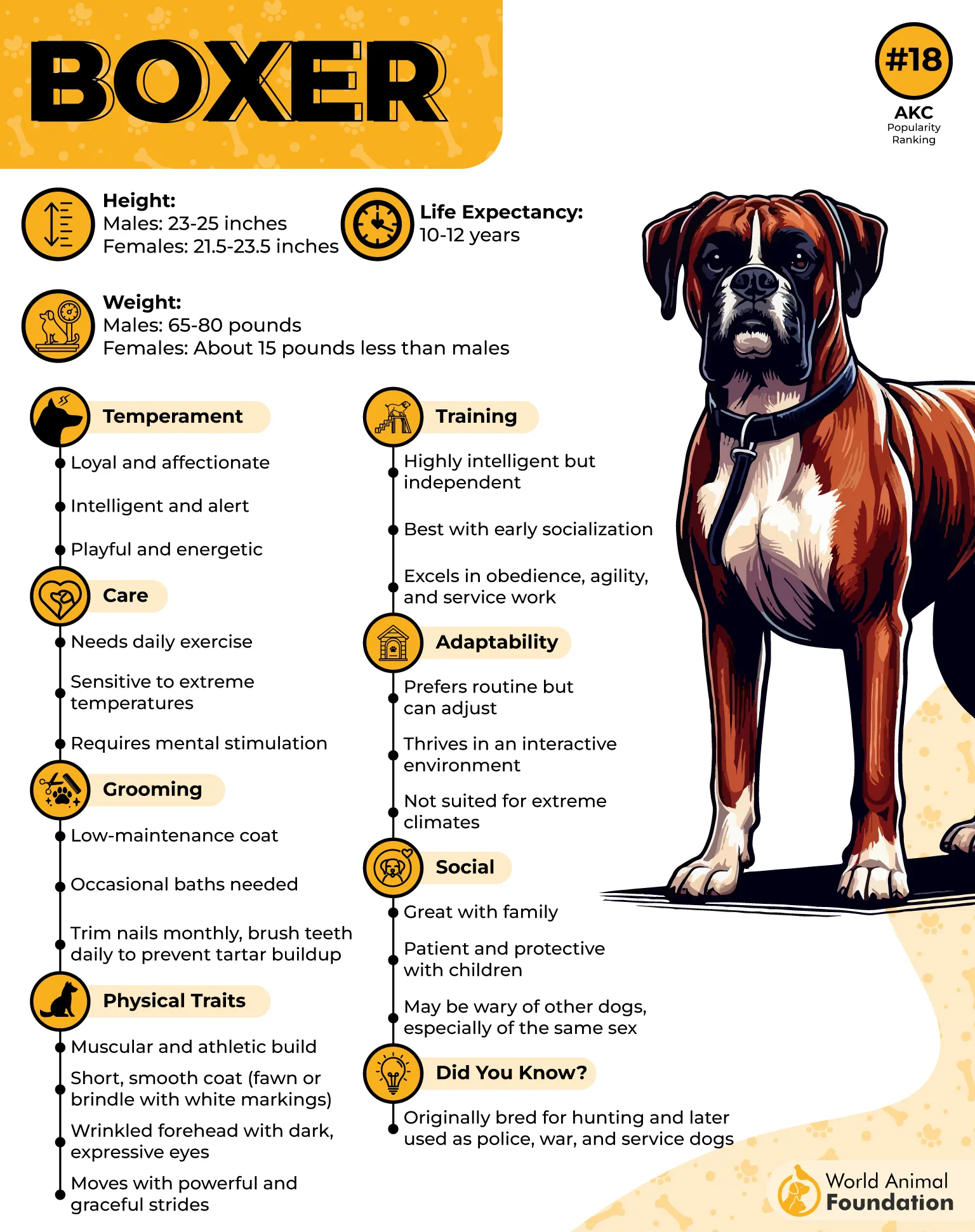
Their physical strength and excitement requires constant training and structure from an early age. Their large size and protective nature means that they can not be left off-leash outside as they may hurt small animals. Health issues are also common in many Boxers that may put emotional and financial stress on owners.
Common Reasons for Abandonment
Need for constant activity
Destructive when bored
Strong and overly enthusiastic, especially around kids
Health Problems
Attention seekers
4. Beagle
Beagles are compact hounds with a strong nose due to their history as tracking dogs. They are curious and incredibly determined when chasing a scent trail, sometimes to the point of ignoring commands and wandering away.
Their small size, cheerful personality and friendly nature may make them seem like easy pets but they can be challenging to manage. Their high energy and stubbornness means that they need constant mental stimulation.
Often known for their loud baying bark, which can be a problem or source of frustration for apartment settings and quiet neighborhoods. They do not like being left alone and may resort to excessive barking, howling, or digging.
Common Reasons for Abandonment
Strong scent drive leads to escape attempts
Excessive barking and howling
Stubbornness and difficulty recalling
Destructive when under-stimulated
5. Jack Russell Terrier
Jack Russel Terriers are small dogs that were bred for fox hunting. They are fast, fearless and always on high alert. They are highly intelligent and possess a strong prey drive, which makes them exciting pets but also very demanding. Unfortunately, people adopt them because of cute looks without realizing just how intense their daily needs are.
They thrive in active homes where they can run, play and have purpose. Apartment living or sedentary lifestyles do not work well for Jack Russells. Their tendency to chase, dig, bark and challenge authority makes them a handful for first time or casual dog owners.
Common Reasons for Abandonment
Lack of stimulation leads to destructive behavior
Aggression towards other breeds and other animals
Frequent barking and digging
High energy and exercise needs may be too demanding for casual owners
6. Chihuahua
The Chihuahuas are the smallest dog breed in the world, but their personalities are bold and fierce, as per PetMD. They tend to bond closely with one person and can be snappy and wary of strangers. Weighing no more than 6 pounds, their strong opinions and loud voices often surprise first-time dog owners who expect a quiet and cuddly lap dog.
While Chihuahuas have an affectionate nature, they require proper training and socialization, which is often overlooked. Often using them as accessories or ‘baby-ing’ them, owners instill separation anxiety and fear-based aggression in them. And as they have long lives, 14-17 years, owners give up on them, hence they are often found in shelters.
Common Reasons for Abandonment
Behavioral issues due to a lack of training or socialization
Over-attachment to one person, aggression with others
Misjudged as low-maintenance
Excessive barking or nervousness
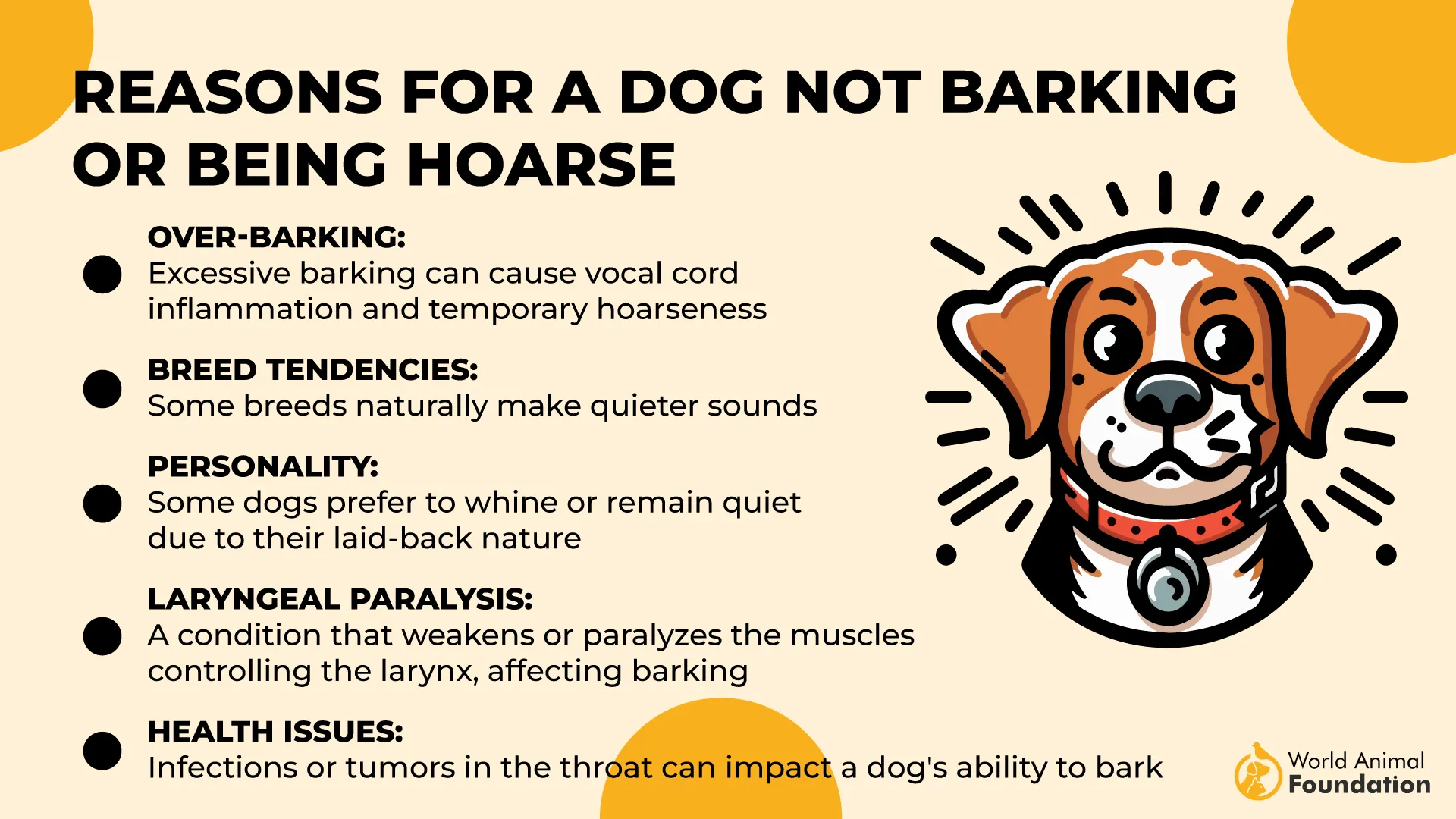
7. Dachshund
Dachshunds, also known as ‘Weiner Dogs’, are instantly recognizable for their long bodies and short legs. Originally bred to hunt badgers, they have a bold, curious, and feisty temperament. They are small but have a strong prey drive and a stubborn streak that can make training a challenge. Many owners fall for their adorable looks but are not prepared for their training needs.
They also have strong vocal tendencies, especially barking at strangers or unfamiliar sounds, acting like little watchdogs. As per Britannica, their long backs make them prone to spinal problems like IVDD, specially if they are let to climb stairs, jump off furniture or become overweight. These health issues can surprise owners and lead to costly vet bills.
Common Reasons for Abandonment
Stubbornness and difficulty with house training
Excessive barking and watchdog behavior
Possessiveness and sometimes aggression
Health Issues like intervertebral disc disease (IVDD)
Adopted for appearance, not personality or needs
Conclusion
While every dog deserves a loving, lifelong home, certain breeds are more commonly surrendered due to mismatched expectations, behavioral challenges, or health concerns.
Some of the most common dog breeds may also end up as shelter dogs, not because they are inherently bad, but because their needs are not fully understood. Other popular dogs, such as the Labrador retriever and pit bulls, end up in shelters too when owners fail to meet their stimulation and exercise needs.
Responsible ownership starts with research, honesty about lifestyle, and a commitment to training and care. By understanding the reasons behind abandonment, potential pet owners can make informed choices and help reduce the number of dogs in shelters. And remember, adopt, don’t shop!


